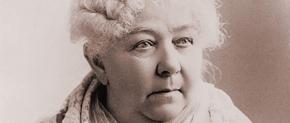The views expressed in our content reflect individual perspectives and do not represent the authoritative views of the Baha'i Faith.
The Baha’i New Year, Naw Ruz, occurs on the Vernal Equinox–Baha’is will start celebrating tonight, March 20th, at sundown.
Have you ever heard of Naw-Ruz?
Naw-Ruz is a holy day for many different religions—Zoroastrians, many Muslims, and Baha’is—and has been celebrated around the world for more than 3000 years.
Baha’is celebrate Naw-Ruz–New Year’s Day–on the first day of spring, the vernal equinox. Like most happy holy days, the Baha’i New Year usually includes singing, eating, dancing and socializing. It brings a warm, diverse and fascinating group of people together to celebrate, have fun, enjoy each other’s company and truly welcome the exciting, unlimited possibilities of a new year.
This year, 172 years after the beginning of the Baha’i Faith, Baha’is all over the world will celebrate Naw-Ruz (Persian for “New Day” or “New Year”) as the annual, celebratory feast of the spiritual and physical springtime. As flowers bloom and bushes bud out and birds trill in the trees, the Baha’is will smile and laugh and hug each other warmly. They’ll truly “eat, drink and be merry,” in the oldest and best sense of that happy phrase.
The annual 19-day Baha’i fasting period comes to a close on the day before Naw-Ruz; which means the Baha’is have prepared for the coming year by practicing detachment from this material world, symbolically cleansing the detritus of the old in the same way the winter storms wash away last year’s dead leaves. Abstaining from food and drink from sunrise to sunset every day, the Baha’i Fast has a powerful impact on those who practice it, emptying their stomachs as it fills their souls.
And when the Fast comes to a close the New Year begins.
Naw-Ruz (or Nowruz, one of its many other spellings) qualifies as the world’s oldest holiday. Here’s what Wikipedia says:
Nowruz is celebrated by people from diverse ethnic communities and religious backgrounds for thousands of years. It is a secular holiday that is enjoyed by people of several different faiths. It originated in the geographical area called Greater Persia (modern day Iran, Western Afghanistan, Tajikistan, and Uzbekistan). The distinct culture based on the language, food, music and leisure activities that developed among the many people and ethnic groups who lived in this area are known as Persians.
Nowruz is partly rooted in the religious tradition of Zoroastrianism. Among other ideas, Zoroastrianism is the first ever monotheistic religion that emphasizes broad concepts such as the corresponding work of good and evil in the world, and the connection of humans to nature. Zoroastrian practices were dominant for much of the history of ancient Persia (centered in what is now Iran). Nowruz is believed to have been invented by Zoroaster himself, although there is no clear date of origin. Since the Achaemenid era the official year has begun with the New Day when the Sun leaves the zodiac of Pisces and enters the zodiacal sign of Aries, signifying the Spring Equinox. Nowruz is also a holy day for Sufis, Bektashis, Ismailis, Alawites, Alevis, Babis and adherents of the Baha’i Faith.
The UN’s General Assembly in 2010 recognized the International Day of Nowruz, describing it as a spring festival of Persian origin which has been celebrated for over 3,000 years. During the meeting of The Inter-governmental Committee for the Safeguarding of the Intangible Heritage of the United Nations, held between 28 September – 2 October 2009 in Abu Dhabi, Nowrūz was officially registered on the UNESCO List of the Intangible Cultural Heritage of Humanity.
For Baha’is, Naw-Ruz isn’t just a party – it serves as a reminder of the oneness of all the Messengers of God, and the spiritual springtime they each brought to humanity. Abdu’l-Baha explains that Naw-Ruz represents “the Day of God,” when a re-awakening of the spirit occurs and the light of a new revelation shines equally upon the entirety of God’s creation:
Soon the whole world, as in springtime, will change its garb. The turning and falling of the autumn leaves is past; the bleakness of the winter time is over. The new year hath appeared and the spiritual springtime is at hand. The black earth is becoming a verdant garden; the deserts and mountains are teeming with red flowers; from the borders of the wilderness the tall grasses are standing like advance guards before the cypress and jasmine trees; while the birds are singing among the rose branches like the angels in the highest heavens, announcing the glad-tidings of the approach of that spiritual spring, and the sweet music of their voices is causing the real essence of all things to move and quiver. – Baha’i World Faith, p. 351.
You May Also Like
Comments

















xo Therese Moning